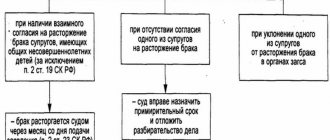Many children are left without parental care. Fate is not always favorable even to those little angels who have not yet seen life. Being a parent is an honorable responsibility. To raise a child, you do not have to be related to him by blood. For those who cannot or do not want to give birth to their children, there is an opportunity to adopt a baby who is left without the company of a biological mother and father. The child’s consent to adoption is one of the necessary conditions for his transition to a new family. How to obtain this consent within the framework of the law?
The legislative framework
The main legal acts regulating the process of placing children in families are the following documents.
- Family Code in the latest edition. It provides basic requirements for the process of transferring minors to parents, stipulates who must give consent to adoption, and establishes the rights and responsibilities of members of the new family.
- Rules for the transfer of children, approved by Decree of the Government of the Russian Federation No. 275. They regulate the procedure for the activities of guardianship authorities when applying to citizens who want to foster a child.
- Regulations on the activities of foreign representative offices operating in the Russian Federation, approved by Decree of the Government of the Russian Federation No. 654. It spells out the status of subjects of other states when transferring a child who is a citizen of Russia to a foreigner. Thus, their responsibilities include: introducing the minor to future parents, placing a substitute family, and participating in the trial. In essence, this body performs the functions of the guardianship and trusteeship department.
- Order of the Ministry of Health No. 290n of 2014 and Decree of the Government of the Russian Federation No. 117. These documents approved the procedure for medical examination of adults in order to identify diseases that prevent them from being adoptive parents.
- The code of civil procedure under which the case is considered.
When making decisions, courts are also obliged to be guided by the explanations of the Plenum of the Supreme Court. The procedure for adoption is described in Resolution No. 8, issued in 2006.
When permission is not required
In addition, the abolition of guardianship is possible without the permission of the parents; for this there are special cases that are prescribed in the laws, namely:
- violent relationship (beating, etc.);
- child abuse in various forms (both physical and psychological);
- moral humiliation of a child, sadism;
- forcing a child to engage in antisocial behavior (encouraging smoking, alcoholism, inducing drug use, forcing begging);
- cases of deprivation of parental rights even before adoption;
- recognition of incapacity, death of parents, missing person, etc.
It should be noted that these special cases must be documented, so if anyone wants to take one of these circumstances into account when considering legal proceedings. Therefore, unproven facts are usually not taken into account. In addition, there may be witnesses to such acts. More often, the court takes the side of the younger one and, after depriving the parents of their rights, does not require their consent to further adoption; it will be considered automatically approved.
Terms and requirements
Foster parents must meet certain criteria. The following cannot become adoptive parents:
- Incapacitated people and partially capable citizens (even if the second spouse is not recognized as such).
- Adults deprived of parental rights.
- Citizens removed from guardianship or trusteeship duties.
- Citizens who have diseases that prevent them from raising a child.
- Former adoptive parents who failed to cope with the responsibilities assigned to them.
- Unemployed people or people without a stable income.
- Having no place of residence (except for indigenous nomadic peoples).
- Citizens convicted of violating values such as life, health, honor, freedom, and dignity.
- Persons who have committed crimes classified as grave or especially grave.
- Adults who have not undergone the necessary training.
- Spouses in same-sex marriage.
The legislator requires that the adult be at least 16 years older than the minor. Also, people who are not in a marital relationship have no right to adopt one child. In addition, to place children in a family, you must obtain permission from the persons specified in the Family Code.
Who can you adopt?
Government Decree No. 275 states that only persons under 18 years of age who are left without the care of their blood parents can be adopted.
Reasons why children are left without care:
- death of one or both parents;
- their absence;
- if parental rights have been deprived;
- blood parents are incompetent.
Adopting a person into a family should always be in the interests of the child; therefore, obtaining permission to adopt from him is an important condition.
The need for consent
If a child under 16 years of age has biological parents, then their consent to adoption is a mandatory condition for transferring the minor to another family (Article 129 of the RF IC). The father or mother can write their permission immediately after the birth of the child. In the future, you will not need to draw up a repeat document. In this case, the court should check whether the previous permission has been revoked. Consent is not required if it is determined that the parents:
- disappeared without a trace;
- not identified;
- incapacitated;
- deprived of paternal or maternal rights at least six months before adoption;
- do not live with the child for a long time and do not perform the duties of a father or mother.
If the biological parent revokes consent to the transfer of the minor, the court will not allow the adoption, since the country operates under the principle of the rights of the mother and father. Written permission is also required from the guardian (trustee) and adoptive parents. If a child is placed in one of the institutions for orphans or children deprived of adult care, a document will be required from the organization’s management, which will reflect consent to placement in a foster family. In order to protect the rights of the child, the court has the right to act contrary to the opinion of these persons and make a decision at its own discretion.
In accordance with Art. 132 of the RF IC, consent to adoption is also required from the child. The court is obliged to listen to his opinion. If the child does not want to contact the adults who are trying to register him as his own, the judge must support the minor.
The age at which a child’s consent to adoption is required is also defined in Art. 132 RF IC. This is 10 years. It is believed that a minor of this age can already independently express an opinion, intuitively feels where it will be more profitable for him to live, and is able to determine his attitude to what is happening. If adoption is refused, the child cannot be transferred to a replacement family. If we are talking about a minor who has not yet turned 10 years old, his thoughts about the upcoming move should be heard by the guardianship authorities and the court, but they are not fundamental when making a final decision.
The child’s consent to adoption is not required if he, although he has reached the age of ten, has previously been raised in a foster family for a long time and does not know that he is step-parent to his mother and father.
Another subject whose opinion is necessarily taken into account by the court is the adoptive parent’s spouse. The case materials must contain his written consent to accept the baby into the family, approved by a notary or a person replacing him. A document with an application for adoption is submitted. The exception is the situation when the husband and wife do not live together.
Restrictions for adoptive parents
Adoptive parents in Russia must be at least 21 years old. During this period, a person is already fully aware of the responsibility of the consequences of having an adopted child in his family. As for the maximum age for adoption, it is 45 years old.
It is until this period that a person can still physically and financially support small children. At an older age, a person develops various diseases that are characteristic of old age.
IMPORTANT: The adoptive parent must feel comfortable both financially and physically. It is in such an atmosphere that a worthy person can be raised.
Procedure for registration of adoption
Expectant parents will need to go through the following steps.
- Contact the guardianship authorities and express your desire to take the minor into the family. There they will give you direction for special training as a teacher.
- Receive a certificate of completion of the courses, collect the remaining documents for adoption and contact the guardianship authorities again.
- Over the course of a week, a government representative comes to the applicant to get to know him better and examine the citizen’s living conditions. Within three days, a report is drawn up based on the results of the visit of a specialist from the guardianship authority. One of the copies of the document is given to the applicant.
- Based on the consideration of the submitted business papers and the home inspection report, a conclusion is made on the citizen’s ability to become an adoptive parent. This decision is made within 10 days from the date of the initial application to the guardianship authorities.
- Having received the conclusion, you need to register with a special person. After this, you can begin selecting a child.
- Before the start of the judicial procedure, substitute parents must personally see the selected minor, examine his documents and confirm with their signature the fact of familiarization with the child’s medical record.
- An application for adoption, as well as other documents, is submitted to the court.
- When preparing a case for consideration, the judge makes a request to the guardianship authorities to provide a written opinion on the need to transfer a particular child to the applicants. At this stage, it is required to obtain the consent of a minor (over 10 years old) for adoption.
- The case is being heard. The judge checks the availability of the necessary consents provided for in Art. 129-133 RF IC. Comments from representatives of the guardianship authorities are heard and recorded in the protocol.
- A decision is made. After receiving it, you can contact the registry office and register as parents. If the adoptive parents have not applied to the registry office within a month, this body itself records the fact of transfer of the child to a foster family.
List of required documents
To contact the guardianship authorities you must provide:
- statement;
- certificate of income for the calendar year;
- extract from the property;
- a certificate of good conduct (you don’t have to do it on purpose; the guardianship authorities have the right to request it independently);
- Marriage certificate;
- medical report;
- certificate of completion of training courses;
- autobiography;
- certificate from the Pension Fund of the Russian Federation - for pensioners;
- spouse's consent.
When applying to the court, you will need a similar package of documents, as well as an opinion issued by the guardianship authorities, and confirmation of the fact that the applicant is registered as a candidate for adoptive parents. There is no need to pay state duty.
Consent to adoption
Detailed explanations regarding the form and type of consent can be found in Resolution of the Plenum of the Supreme Court of the Russian Federation No. 8. It is important to correctly draw up this document, because the speed of the start of the consideration of the case depends on it.
Child's consent
In accordance with paragraph 12 of the said Resolution, the responsibility for conducting a conversation with a minor rests with the guardianship authorities. There is no requirement for a single document form. Often, the child’s opinion is indicated by a representative of the authorities in a special conclusion. It is also possible for the child to express consent. To do this, he is given a form, or the minor writes down his thoughts in free form.
In the consent you should write:
- FULL NAME. child;
- date of birth;
- location;
- confirmation of consent to adoption.
At the end of the document, the child signs.
Such consent, written by the minor in his own hand, is endorsed by a representative of the guardianship authority, sealed with the seal of the institution where the child resides, and the date is indicated. The court also has the right to call the child into the courtroom and ask his opinion during the consideration of the case. What is said is recorded in the protocol and has the same significance as a written document.
Consent of the biological parent
Permission to adoption can be given either in writing or orally. Moreover, the court always needs to know the opinion of the parents. Even if the mother or father has not lived with the child for a long time, and the latter lives in another family.
Written consent is drawn up in any form and must be approved by a notary or the head of the institution where the minor is placed.
A sample document might look like this:
The document can specify the specific person to whom the child is transferred, or not indicate one. Consent may be withdrawn before the end of the court hearing.
The second option for granting permission to adopt is verbal. In this case, the parent is invited to the court hearing. The court hears the opinion of the father or mother, what is said is recorded in the protocol. After this, the adult must sign his testimony.









